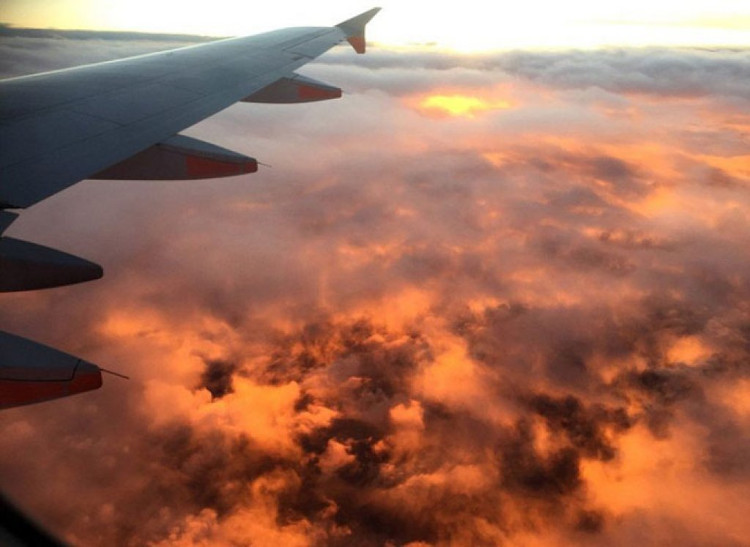Why should you apply sunscreen even when flying?
You should not ignore this habit even when dragging the airplane window during long flights.
Frequent flying makes passengers face many symptoms such as varicose veins, tinnitus, dehydration, loss of appetite . Most notably when at a height of tens of thousands of meters, you have to face the risk of skin cancer if you have to deal with many types of harmful rays, can penetrate through the aircraft door.

The person most affected by ultraviolet rays is the pilot.(Photo: Carters News).
According to a scientific study, at a height of about 10,000 meters, closer to the sun, passengers are likely to be affected several times more than usual. If the flight takes an hour, it means you have to suffer from UV radiation like lying on an artificial tanning bed (tanning bed) for 20 minutes. Of course the pilot is the most affected, the passenger can avoid the sun by pulling down the window.
However, the sun emits two types of rays that are harmful to the skin: long-wavelength ultraviolet rays A (UVA) and ultraviolet rays with average wavelength B (UVB). But most aircraft windows can only block UVB rays.
UVA can easily penetrate the plane glass, penetrate deep into the skin, to the epidermis, causing bad problems such as premature aging, wrinkled skin . even the risk of skin cancer if you come into contact. too much. In particular, note that UV light can be amplified when the plane passes through snow or thick clouds.
So if you prefer to open a window or even don't open the window during long flights, you should still have a high SPF as much as possible to protect your skin.
- Video: Automatic sunscreen for seafarers
- FDA claims: Sunscreen tablets are not as good as you think
- Most of us are making serious mistakes when using sunscreen
- Interesting mysteries about sunscreen
- Use sunscreen when your baby can prevent cancer later
- The secret to effective sunscreen for skin
- Smart swimwear reminds you to apply sunscreen
- The truth needs to know about sunscreen
- Experts warn of risk from 'homemade' sunscreen
- Nearly three-quarters of sunscreens do not work as advertised
- Why can sunscreen protect against sunshine?
- Using umbrellas is not effective against sun protection
 'Fine laughs' - Scary and painful torture in ancient times
'Fine laughs' - Scary and painful torture in ancient times The sequence of numbers 142857 of the Egyptian pyramids is known as the strangest number in the world - Why?
The sequence of numbers 142857 of the Egyptian pyramids is known as the strangest number in the world - Why? History of the iron
History of the iron What is alum?
What is alum?